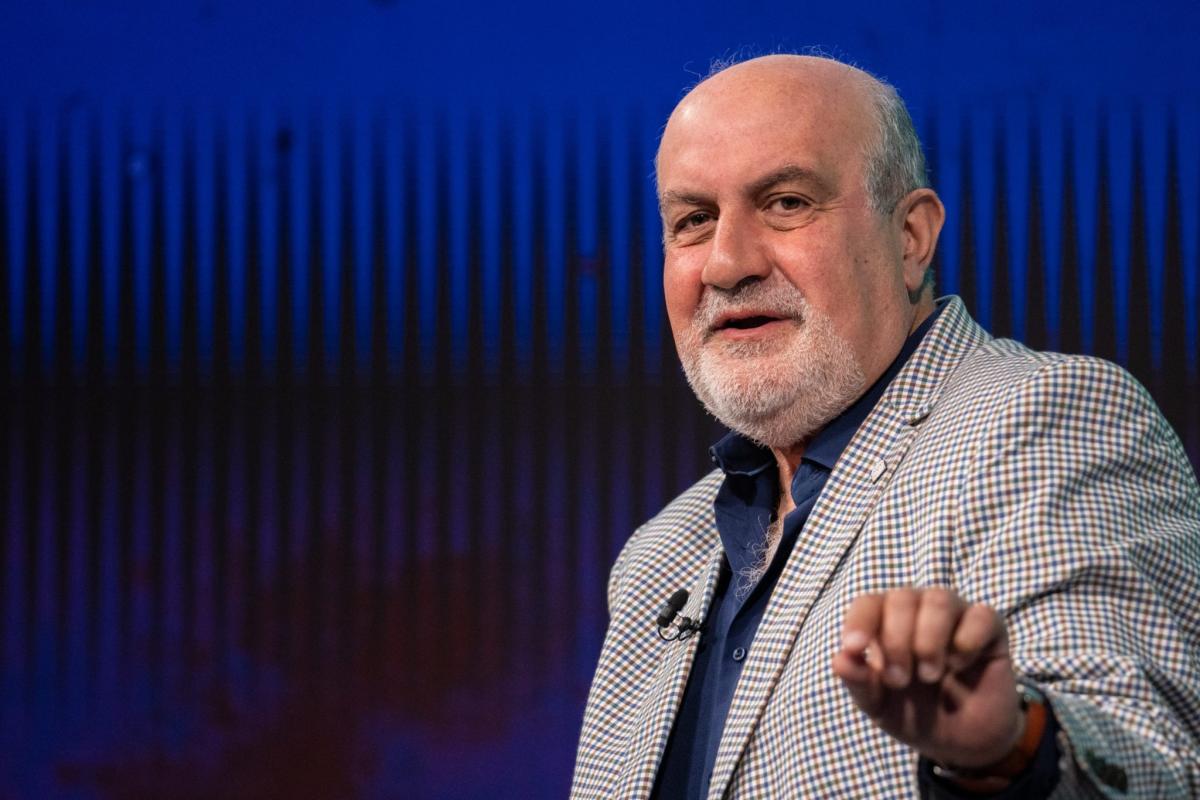
It’s been dubbed the “most predictable crisis” facing the U.S. economy, but an expert has warned it will take a “miracle” to save America from its national debt problem.
Nassim Nicholas Taleb, the author of best-selling book The Black Swan, correctly predicted the 2008 financial crash but said “gloomy” times ahead for the U.S. economy are far more easy to spot.
Taleb, who advises Miami-based hedge fund Universa Investments, told an event hosted by the organization this week that national debt is a “white swan,” a risk that’s more probable than an unpredictable “black swan” event.
“So long as you have Congress keep extending the debt limit and doing deals because they’re afraid of the consequences of doing the right thing, that’s the political structure of the political system, eventually you’re going to have a debt spiral,” he explained, per Bloomberg. “And a debt spiral is like a death spiral.”
Currently the American national debt stands at $34.14 trillion—about $100,000 for every person in the U.S.—with the debt ceiling currently suspended until 2025 courtesy of a deal passed in the summer of 2023.
And although some of the shorter-term economic signals are flashing green—inflation is coming down, the Fed may by eyeing rate cuts, and employment is staying stable—Taleb and big Wall Street names like Jamie Dimon are sounding the alarm.
Last week the CEO of JPMorgan Chase said Washington faces a global market “rebellion” over the debt level, adding: “It is a cliff. We see the cliff. It’s about 10 years out.”
Likewise former treasury secretary Robert Rubin said last week the U.S. was in a “terrible place” because of the deficit, and called for tax increases to balance the books.
Taleb also echoed Dimon’s warning that the issue—which he referred to as a “hockey stick” courtesy of the uptick debt will take as a result of costs to maintain the debt—won’t be contained to just America.
“We need something to come in from the outside, or maybe some kind of miracle,” Taleb said in answer to how the issue could be rectified. “This makes me kind of gloomy about the entire political system in the Western world.”
‘We have no idea how to value companies’
Unfortunately for his audience, Taleb also didn’t have a rosy outlook for the stock market. Like other Wall Street bears he warned that analysts are losing sight of how to appropriately value companies, inflating their worth beyond tangible outcomes.
The New York University professor said: “In the past 20 years price per earnings was something you could grasp, today is all over the place. It’s a modern accident, an accident of history, we have no idea how to value companies. It’s mostly narratives and stories about the future to raise money so you can sell to someone else.
“Think of the number of people who made a lot of money in venture capital off of companies that ended up making no money. Someone got stuck with that bill at the end of the meal. This is what I mean about these crazy company valuations.”
The over-valuation alarm has been sounded for some time by Morgan Stanley’s Mike Wilson. In February last year the chief investment officer warned the S&P 500 is in the “death zone”, a term mountaineers use to refer to altitudes where oxygen is no longer sufficient to sustain human life for an extended period of time.
“Either by choice or out of necessity, investors have followed stock prices to dizzying heights once again as liquidity (bottled oxygen) allows them to climb into a region where they know they shouldn’t go and cannot live very long,” Wilson wrote, according to MarketWatch. “They climb in pursuit of the ultimate topping out of greed, assuming they will be able to ascend without catastrophic consequences. But the oxygen eventually runs out and those who ignore the risks get hurt.”
Other analysts have a more bullish outlook. Despite uncertainty at some of America’s biggest companies, experts told Fortune that the Magnificent 7 stocks (Alphabet, Amazon, Apple, Meta Platforms, Microsoft, Nvidia and Tesla) are set to be the backbone of the market for years to come.
This story was originally featured on Fortune.com
